On June 16, the Special Adviser to the President on Information and Strategy, Bayo Onanuga replied a New York Times article of June 11, which alleged that Nigeria was passing through its worst economic situation in generations. The New York Times article dwelt on food crisis, insecurity, weak currency and a badly implemented fuel subsidy removal to paint a very grim picture of Nigeria’s normal situation under Tinubu.
Mr Onanuga called the article a typical foreign media report on African countries, which often casts Africa in bad light. Onanuga said Tinubu did not create, but inherited the present system of things in Nigeria. According to him: “As a respected economist in our country once put it, Tinubu inherited a dead economy. The economy was bleeding and needed quick surgery to avoid being plunged into the abyss, as happened in Zimbabwe and Venezuela.”
Join our WhatsApp ChannelFor Onanuga, the article was one-sided, and failed to mention all that Tinubu was doing to change the narrative. One of Onauga’s examples is that fuel subsidy had consumed $84.39 billion between 2005 and 2022, despite significant infrastructural deficits and a need for better social services. Yet, information emerged last week that Tinubu’s government was still subsidising fuel, despite claiming to have removed subsidy.
READ ALSO: Buying New Jets Amid High Debt, Poverty, Not Acceptable, Obi Tells Tinubu’s Govt
Without doubt, Nigeria was in a bad state prior to Tinubu’s inauguration.
In February 2023, the National Bureau of Statistics estimated that 83 million Nigerians were in abject poverty, living below $1.9 a day, while 133 million Nigerians lived in multidimensional poverty. For example, about 37% of qualified youth were unemployed. Some estimates have shown that as many as 45% of Nigerians plan to relocate to other countries as a result of hardship and hopelessness. That’s according to a 2022 PEW Research Survey. “Over 12000 Nigerians migrated to the UK alone in 2022, where at least 13,000 Nigerian health workers operate.” Why not? The dollar to naira exchange rate at times reached 800 naira in the parallel market. Domestic fuel prices were increased frequently at the discretion of marketers, reaching N450 (from N165 in 2015) in the last half of 2022 before coming down to 250 in the month after the elections.
A devastatingly mismanaged cashless and naira redesign policy, and strident allegations of rigged presidential elections capped a tumultuous eight years seen in many circles as Nigeria’s worst experience in federal governance.
In total, Nigerian universities spent 719 days on strike under Buhari, who had berated the previous administration for refusing to pay striking teachers. Unemployment hovered around 41% by 2023, while inflation remained a double-digit affair, standing at 22.04%. Between 2015 and 2023, Nigeria’s internal and external debt rose from N12.6 trillion to over N80 trillion, with the country having a budget deficit of N47.7 trillion over Buhari’s eight years in office, rising by over 370% from N2.41 trillion in 2016 to 11.34 trillion in 2023. As of October 2022, nearly 25 million Nigerians were declared food insecure by Cadre Harmonise, a government-led and UN-supported food and nutrition analyst. The Food and Agricultural Organisation recently declared Nigeria’s food security situation as worsening.
According to the World Bank’s Public Finance Revenue Report, Nigeria’s physical infrastructure deficit will reach $3 trillion by the next 30 years, with Nigeria coming 132nd out of 137 nations ranked on the 2018 global competitive index due to low quality of infrastructure. In 2019, Nigeria moved up to 116 out of 141 countries. The report says it will take Nigeria 300 years to close its infrastructure gap. This is despite the October 2022 claim of president Buhari that Nigeria borrows to finance infrastructural projects. The International Energy Agency recently reported that Nigeria’s national electricity systems collapsed 46 times from 2017 to 2023.
READ ALSO: Our Reforms Intended To Build Stronger Foundation For Future Growth – Tinubu
Tinubu also inherited an enormous challenge of insecurity from President Buhari’s administration. According to Nigeria Security Tracker (NST), From June 2015 to May 2023, over 63,000 fatalities were recorded averaging about 22 deaths each day. This includes over 30,000 civilians and over 4,800 security personnel. In fact, the gory story of Tinubu’s young administration was presaged by the 109 election-related deaths across Nigeria just before the announcement of the 2023 presidential election results. Figures from the SBM intelligence show that just six week in office, over 600 lives had been killed by non-state actors across the country, which included Boko Haram insurgents, ethnic militias, armed robbers, Fulani herdsmen, unknown gunmen attacks and kidnappers.
But what is Bayo Onanuga’s Point: Tinubu Promised to Continue Buhari’s Legacies
One correct thing about the response of Bayo Onanuga to the June 11 critical reports of New York against Nigeria is that the report was overly negative. The report did not therefore take into account the good things that Tinubu had done. But Onanuga missed the point in the kinds of examples he gave about what Tinubu was doing. He mainly talked about promises and support for food production and response to insecurity. He admitted that things were not yet looking up significantly.
But how would things look up when Nigeria has refused to address the right issues such as local refining of petroleum products by harnessing the talent of illegal refiners they arrest every day, addressing insecurity in the farms as well as kidnapping, ethnic cleansing, and land usurpation. Nigeria has approximately 923,768 square kilometres in total land size, 33% of which is arable land, yet cannot produce enough food for its citizens.
Dependence on the import market for key resources and facilities has created a kind of agricultural colonialism that has affected productivity. Usman Birat of Kaduna State University in Nigeria found in a study on the impact of insecurity on food production that kidnapping, cattle rustling, communal clashes and general insecurity contributed the most among the reasons for lack of access to the farms or lack of interest in farming. The distribution chain is yet another headache, with problems such as bad roads, levies and taxes by security agents and other non-state actors on the roads.
Tinubu is Truly Upholding Buhari’s Legacies
Moreover, Onanuga actually forgot that Tinubu had boldly said he would replicate Buhari’s legacies if elected. So, when over 100 people were killed in violence less than Tinubu’s one month in office, many beat their chest about a fulfilled prophesy of hardship to hardship. For real, unemployment has not been better than 33%, where Tinubu met it, and things have worsened from the point Tinubu inherited nearly 65% or 130 million Nigerians who lived in abject poverty of less than $1.9 a day.
As of April 2024, Nigeria’s inflation hovered around 34%, while food inflation had hit 40.01% as of March 2024, with the lending rate at 24.75%. Instead of combating terrorism in the farms, government is approving five billion naira to states to buy non-existent food for poor people. By May 2024, fuel prices hovered around N1,000, per litre with the naira to dollar exchange vacillating between N1,400 and N1,600. By contrast, global inflation actually cooled between 2022 and 2024. The International Monetary Fund had forecast a fall in global inflation to 6.8% from 8.7% in 2023 and 5.2% in 2024. Simply, global inflation is falling because oil prices are falling in much of the developed countries. In Nigeria, a major oil producer, it is rising instead. The national grid collapse of March 28 is at least the fifth such national embarrassment in six months.
In alluding to Nigeria’s economy as dead when Tinubu came in, Onanuga had contradicted his master who called it a legacy during campaign period. Many analysts had asked early in Tinubu’s government if he was ready for governance beyond rising to power in the manner he did.
The Presidential Candidate of the African Action Congress (AAC) in the February 25, 2023 election, Omoyele Sowore, said last August that Tinubu was not ready to rule Nigeria. Echoing the same sentiments, renowned investigative journalist, David Hundeyin, said in London that it was doubtful if Tinubu was ready for the presidency beyond achieving that ambition.
Hundeyin added that “If no action is taken, my assessment is that Nigeria as a whole will become fundamentally destabilized when the sharp divide between the leadership and the people becomes impossible to mitigate or work around.” Perhaps, this explains the New York Times article.
Mutual Duplicity: Nigeria and the US may just be Acting a Joint Script
Considering the influence of the United States of America and other world economic bodies such as IMF and World Bank, it is curious that a pro-government American-based news outlet is bringing the Nigerian economy to the fore front, and in grim light. In May, the IMF applauded as Tinubu pontificated at the World Economic Forum in Riyadh, Saudi Arabia that fuel subsidy removal saved Nigeria from the brink of economic collapse. So, whose policy was the subsidy removal, and how come the New York Times article?
In recent memory no Nigerian has forgotten the part played by the US and Britain in the socio-economic and political stability in the entire Sahel. Since 1999, when Nigeria returned to democratic rule, every election cycle has revolved around London, which appears to be the conferrer of legitimacy to presidential aspirants. Former US president, Barack Obama and the then British Prime Minister, David Cameron, played a huge role in foisting Buhari on Nigeria in 2015. Until it is enough time to judge Tinubu, Buhari is still not judged better than any president in Nigeria’s history.
Between 1999 and 2023, Nigeria moved from a fuel price (premium motor spirit) of less N25 naira to N625; four working refineries to no functional refinery; a dollar to naira exchange of N22 to nearly N2,000 naira; inflation rate of 6% to 24%. Unemployment, hunger, insecurity and corruption have all defied statistics to make the country one of the worst places to be a human being. Yet, the US and Britain have had a hand in all the economic policies and developmental plans Nigeria has had since 1956.
When Jonathan tried to remove fuel subsidy in 2012, the CNN, the IMF and other world economic bodies assailed him with criticism. Quite interestingly, today’s President Tinubu and the immediate past President Buhari were at the vanguard of the grim opposition to President Jonathan’s attempt to remove fuel subsidy in 2012. Tinubu then said that government had “tossed the people into the depths of the midnight sea”. Buhari called subsidy a huge scam. Yet, a BBC report following Tinubu’s inauguration-day announcement of fuel subsidy removal said: “Yet there is more of an acceptance now that the subsidy should be scrapped to free up money for essential public services like transport, health and education.”
It is curious therefore how there is now a clash of opinions between United States interests and Nigerian government. Note that it is here taken for granted that given the obvious support given to the current US government by the New York Times, and in view of the role played by the US in ensuring the Tinubu presidency, the said New York Times article is not at variance with the US government at this time.
As a result, somebody has to tell Nigeria what is happening. What is common knowledge is that the economic scripts that have brought Nigeria to the lowest levels of economic degeneration have been sanctioned and in fact written by the IMF.
Who knows? These criticisms may yet be another way to make further inroads, as has been alleged in some quarters about the US being intent on building a military base in Nigeria. How can a country that played the kind of role it played during Tinubu’s certificate saga and election tribunal cases pretend now to care about the performance of their political seed? Enough of this caricature of developing countries by the US and their cohorts.
It is on record that the US and Britain take the lead in profiling Nigeria according to ethno-religious lines. Yet, they are the quickest to discredit Nigeria as overly ethnic and religious. Again, it is just saying that we do not really know what is happening.
The accusations and counter accusations between the Nigerian government and CNN or New York Times may be a drama to turn the attention of Nigerians away from the synergy that both countries have had in terms of foisting bad leaders on Nigeria. Enough of this seeming Nollywood melodrama.
Dr Mbamalu, a Jefferson Fellow and Member of the Nigerian Guild of Editors (NGE), is a Publisher and Communications/Media Consultant. His extensive research works on Renewable Energy and Health Communication are published in several international journals, including SAGE.
SMS/Whatsapp: 08094000017
Follow on X: @marcelmbamalu
Dr. Marcel Mbamalu is a communication scholar, journalist and entrepreneur. He holds a Ph.D in Mass Communication from the University of Nigeria, Nsukka and is the Chief Executive Officer Newstide Publications, the publishers of Prime Business Africa.
A seasoned journalist, he horned his journalism skills at The Guardian Newspaper, rising to the position of News Editor at the flagship of the Nigerian press. He has garnered multidisciplinary experience in marketing communication, public relations and media research, helping clients to deliver bespoke campaigns within Nigeria and across Africa.
He has built an expansive network in the media and has served as a media trainer for World Health Organisation (WHO) at various times in Northeast Nigeria. He has attended numerous media trainings, including the Bloomberg Financial Journalism Training and Reuters/AfDB training on Effective Coverage of Infrastructural Development of Africa.
A versatile media expert, he won the Jefferson Fellowship in 2023 as the sole Africa representative on the program. Dr Mbamalu was part of a global media team that covered the 2020 United State’s Presidential election. As Africa's sole representative in the 2023 Jefferson Fellowships, Dr Mbamalu was selected to tour the United States and Asia (Japan and Hong Kong) as part of a 12-man global team of journalists on a travel grant to report on inclusion, income gaps and migration issues between the US and Asia.





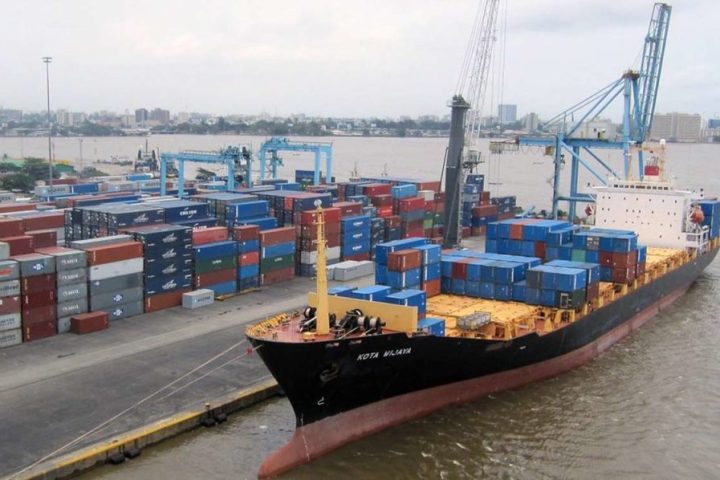
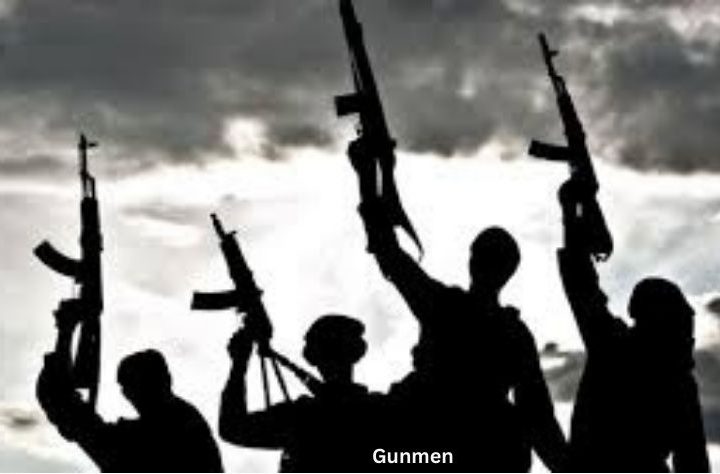
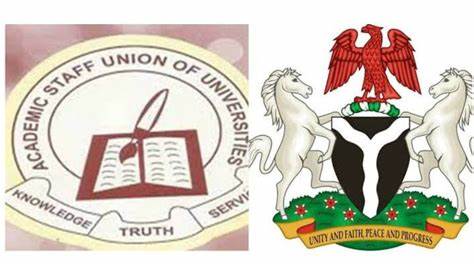
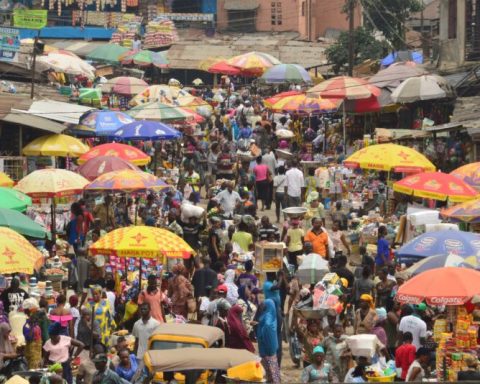






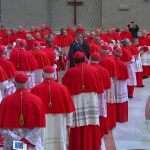

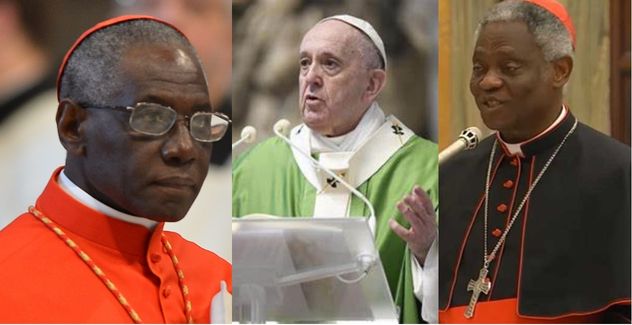
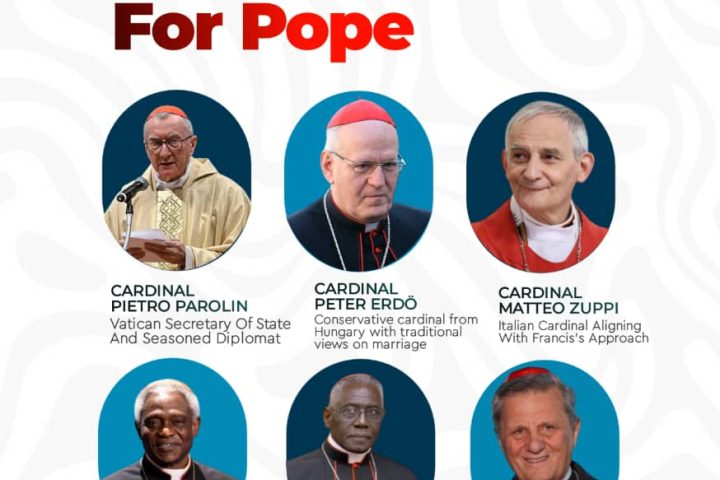
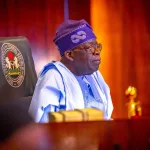
Follow Us